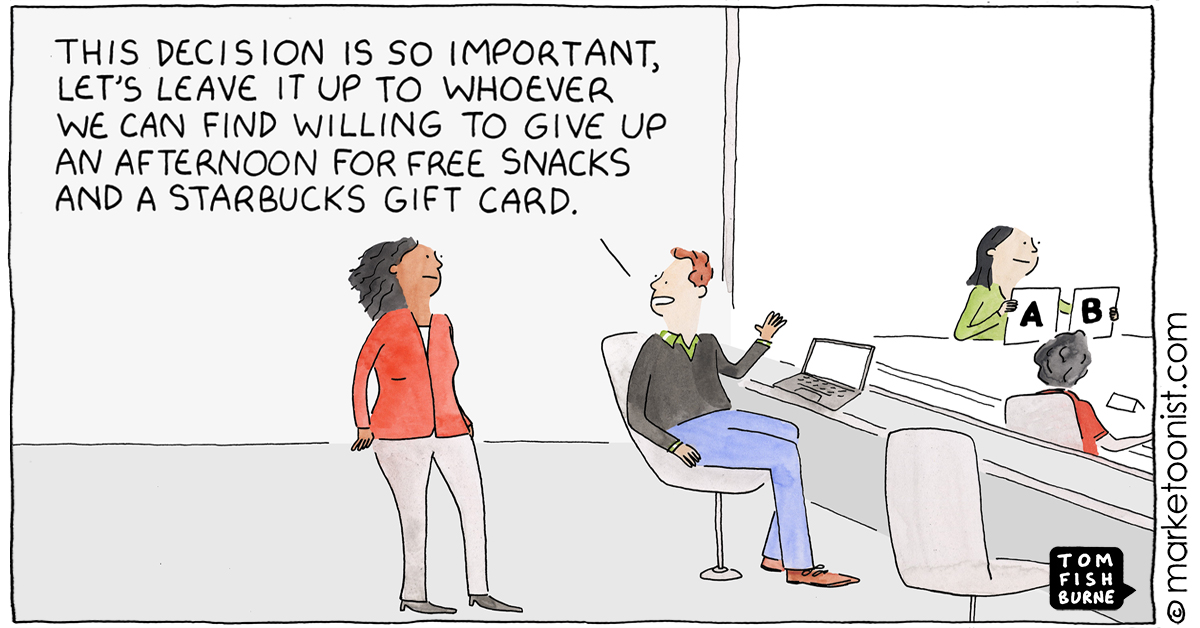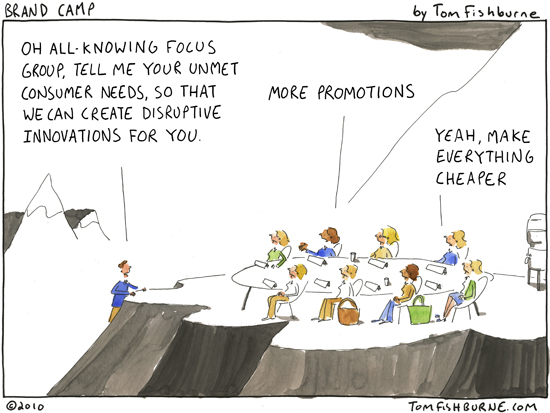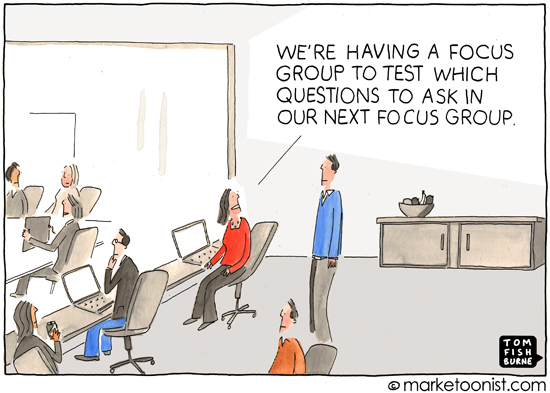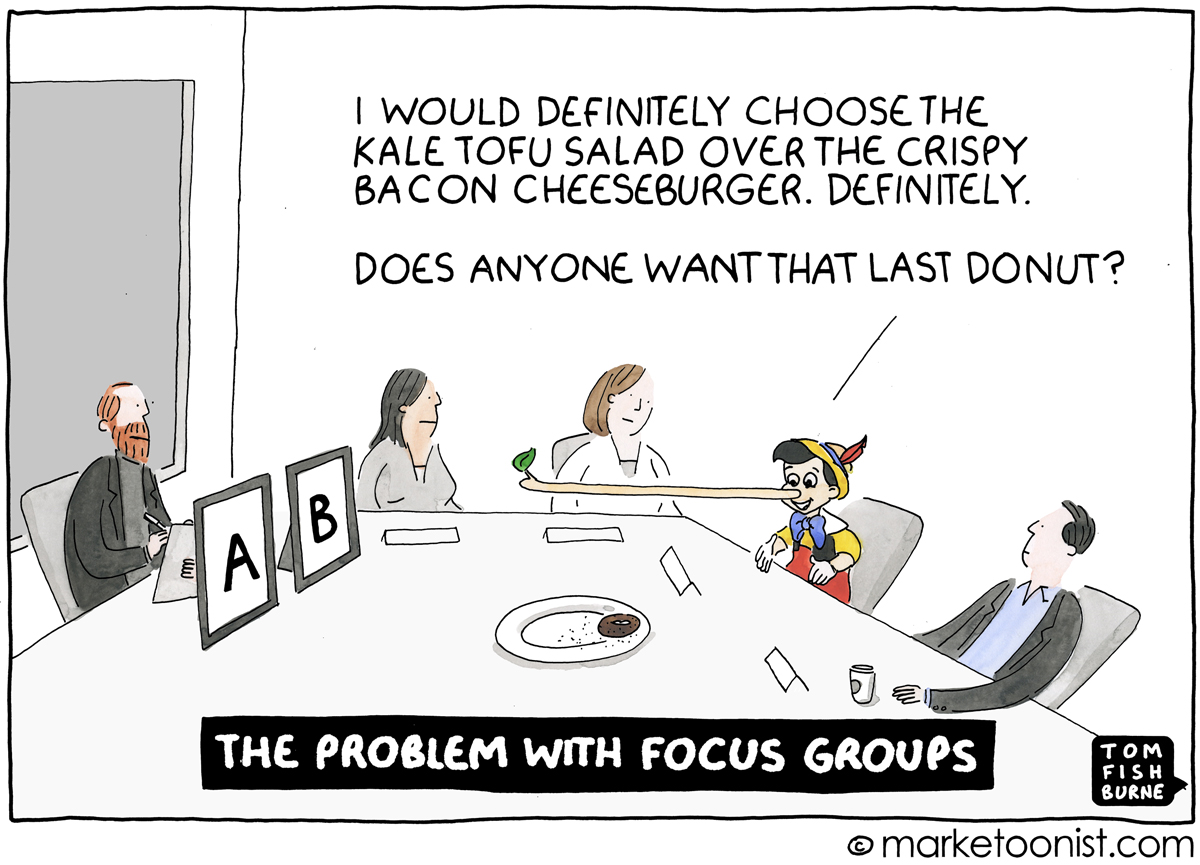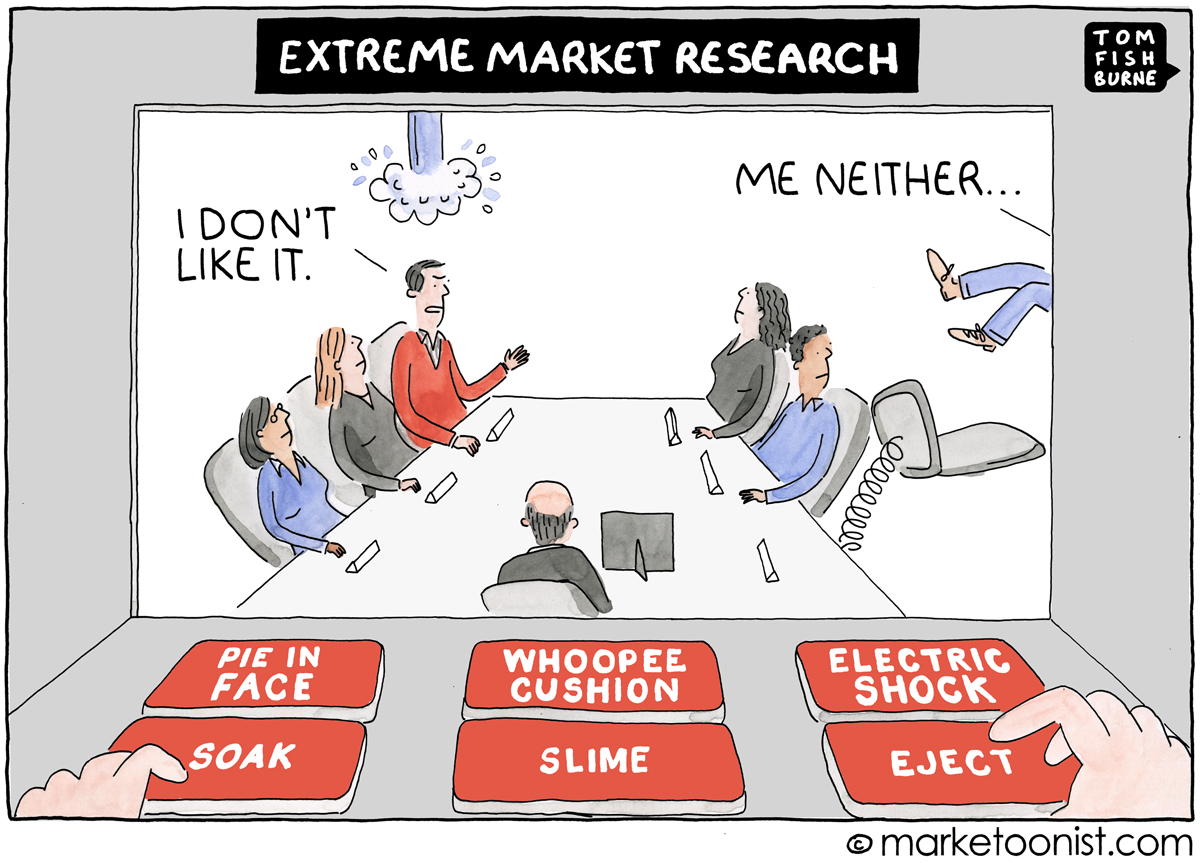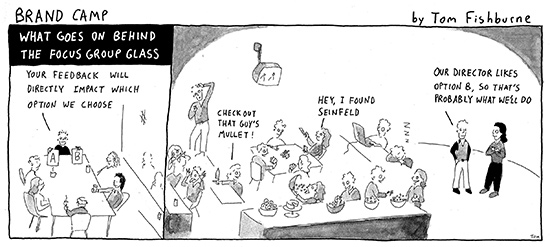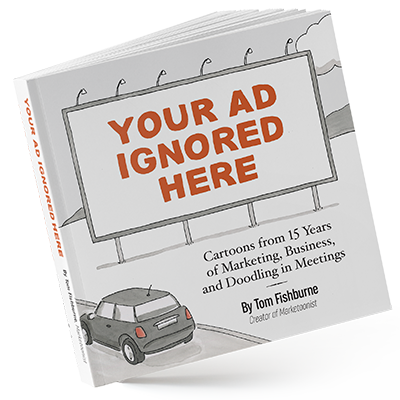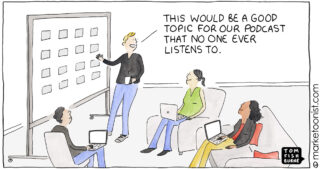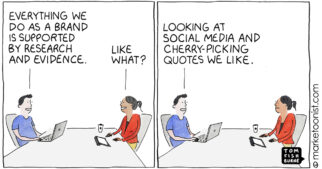This cartoon is less about focus groups than how we often use focus groups. Or really any type of market research.
Years ago, I overheard some agency friends joke about “the Oracles of Eden Prairie.” Eden Prairie is a suburb of Minneapolis, where a lot of focus groups happen.
These agency friends went on to describe the strange process of bringing new ideas (for campaigns or new products or packaging designs) to be judged by “the Oracles of Eden Prairie” — eight randomly selected people who had no idea how much power their words held on whether these ideas made it.
Frequently they were asked to opine on questions anyone would have trouble answering with any accuracy — like articulating their “unmet consumer needs.” Later, verbatim quotes were taken from the focus groups to justify all sorts of decisions, often as unquestionable sources of truth.
I once drew the Oracles of Eden Prairie in a cartoon at the top of a mountain, with a marketer climbing to ask, “Oh all-knowing focus group, tell me your unmet consumer needs, so that we can create disruptive innovations for you.”
The Oracles reply: “More promotions” and “Make everything cheaper.”
Stephan Gans at Pepsi recently talked about using an AI tool from a company called Tastewise to research new snackfood flavor ideas. Tastewise uses AI to analyze patterns in data from five million recipes, two million menus, and 22 billion social media interactions to surface insights no individual consumer would ever be able to articulate. I like this observation:
“If you would’ve asked consumers, ‘let us know what you think would be a great flavor for this brand,’ nobody would have ever come up with seaweed.
“People don’t associate that typically with a specialty snack from a brand. But because of the kind of listening and the outside-in work that we did, we were able to figure that out through the AI that’s embedded in that tool.”
Not every market research tool is right for every market research question. Treating any source of consumer insights as an oracle can lead you astray. They are all tools for decision-making, but shouldn’t replace decision-making itself.
Here are a few related cartoons I’ve drawn over the years, including one of my earliest in 2002 — back when I called this series Brand Camp:
